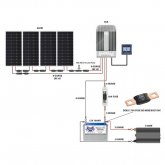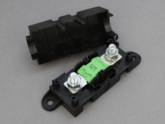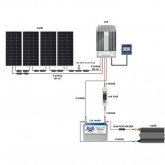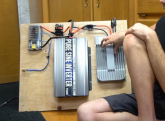kenkoh
Solar Enthusiast
I'm new & know nothing much. Let me know any problems with this thanks. I'm not sure about where the 175a bolt on fuse go and what I found on Amazon says 175amp & '32V' is that the right one?
I'm using a 40a charge controller, 4x 100w panels, 1500w pure sine wave ca& a single Battleborn 100a lithium battery. I get 4 hours sun average & I need to power a single 15 Macbook Pro (87w) for 11 hours everyday thats it. As I understand it a single 1200w hr battleborn should do it (1200/87w = 13).
Will this fuse work for solar?
I'm using a 40a charge controller, 4x 100w panels, 1500w pure sine wave ca& a single Battleborn 100a lithium battery. I get 4 hours sun average & I need to power a single 15 Macbook Pro (87w) for 11 hours everyday thats it. As I understand it a single 1200w hr battleborn should do it (1200/87w = 13).
Will this fuse work for solar?
Amazon.com: Bussmann (BP/AMG-175-RP) 175 Amp High Current Bolt-on Fuse: Automotive
Buy Bussmann (BP/AMG-175-RP) 175 Amp High Current Bolt-on Fuse: Fuses - Amazon.com ✓ FREE DELIVERY possible on eligible purchases
www.amazon.com
Attachments
Last edited:









